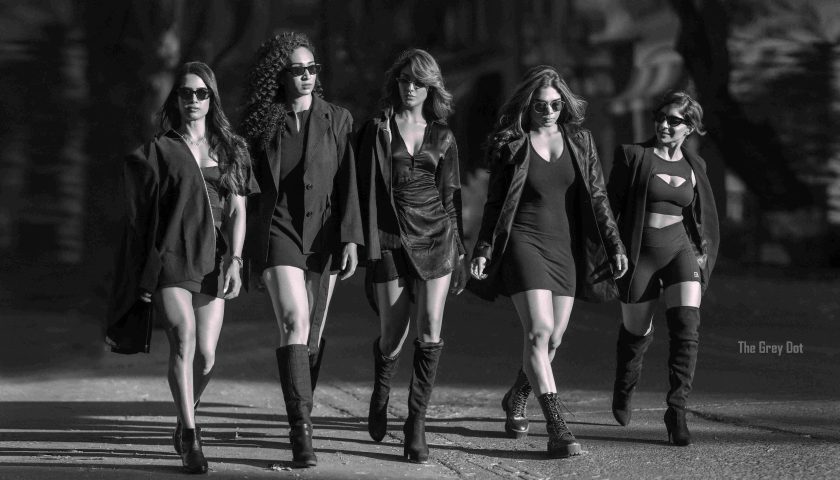This holiday season was not a very happy one for TikTok.
Just days before the calendars turned to 2023, US President Joe Biden signed a spending bill for next year that included a section banning the new favorite fashion app from the federal government’s devices. The “No TikTok for Government Devices Act,” as the bill is unimaginatively titled, gives the government 60 days to set guidelines for imposing the new restriction.
As of 2020, more than 20 US states have also taken steps to banish the Chinese-owned app from some or all government devices, with momentum picking up recently. Early last month, a bipartisan group of US lawmakers proposed legislation to block it from operating in the US entirely. The bill faces a tough road to becoming law, but it illustrates just how much of a threat the US considers TikTok, despite its reputation as a place for videos of dancing teenagers, silly animals and viral food trends .
In the coming months, US authorities appear poised to step up the pressure even further, which could have ramifications for TikTok’s more than 100 million US users, as well as the many fashion businesses that reach audiences through it.
What the outcome will be is uncertain. Possibilities at the moment include an outright ban, a forced sale to a non-Chinese company or stricter regulations that could affect how TikTok manages data or its ability to accept advertising dollars. But with the Republican Party, which has led the charge against TikTok, gaining control of the US House of Representatives, pressure on the app looks set to increase.
“Congress hates TikTok,” said James Andrew Lewis, director of the strategic technologies program at the Center for Strategic and International Studies, a think tank in Washington, DC.
Why are US lawmakers so worried about TikTok?
As TikTok’s popularity has grown, so have fears that the Chinese government could gain access to TikTok’s vast amount of data on US users through its parent company, ByteDance, or take control of the algorithm that determines what they see. users, allowing China to, in the words of FBI Director Christopher Wray, “manipulate content and, if they want, use it for influence operations.” The issue first gained attention under former President Donald Trump, whose attempt to ban the app was blocked by a court and later reversed by Biden.
Chinese propaganda videos are nowhere near the top of the list of what users watch, but social media more broadly has become a battleground where foreign agents, including some based in China, run strategic influence campaigns and try to interfere in elections. . TikTok has disputed claims that the Chinese Communist Party could use it to sway viewers, saying the Chinese government does not control ByteDance or TikTok. In a statement, a spokesperson called the US bans on the app hasty and politically motivated.
There are also other concerns about the data that TikTok collects. Cybersecurity experts warn that foreign actors could use it to gain access to confidential information about members of the government or employees of US companies that deal with critical infrastructure. Despite efforts to separate TikTok from China, including registering Texas-based Oracle to store its data in the US, they say it is effectively impossible to do as long as the app is Chinese-owned, as Beijing can force the private companies in the country to return the handover. data. ByteDance also recently admitted to accessing the data of journalists from the Financial Times and BuzzFeed News as it sought to track the companies’ leaks, raising concerns in Europe as well.
What can US officials do to restrict TikTok?
While the idea of outright banning TikTok in the US may seem outlandish, it’s not out of the realm of possibility. India, for one, has banned it. However, it is not the most likely course of action in the US. The company has not broken any US laws and while it is not impossible to impose a blanket ban, according to Lewis it would be difficult. As Trump revealed, the effort could face legal challenges.
But there are other steps lawmakers can take. One option would be to force ByteDance to sell the business. Republican congressman Mike Gallagher, who introduced legislation to ban the app, has said a sale to a US company would be an “acceptable outcome”. The idea took off in 2020 even under Trump, with companies including Walmart signaling interest in buying the app.
ByteDance was reluctant to part ways with TikTok even then. Its massive success since probably makes the company less apt to let it go, and it’s doubtful Beijing would support the sale of one of the rare Chinese apps with a truly global audience. The Biden administration is also said to be split on whether to try to push ByteDance out.
Another path would be for TikTok to broker an agreement with US authorities to be more transparent and implement more measures to ensure it handles and stores user data in a way that would alleviate their concerns. of security. Late last year the company tried to reach such a deal, but many government officials were against the deal. A TikTok spokesperson said the company continues to work with the US government to find a solution that meaningfully addresses these concerns at the federal and state level.
But Lewis said no deal could be hard enough to satisfy Republicans and the Justice Department. An alternative could be targeting TikTok’s advertising business, which provides a fast-growing revenue stream.
“The president can use his IEEPA — International Emergency Economic Powers Act — authorities to block financial transactions so that an advertiser can’t pay TikTok,” Lewis said. “Congress could force the administration to do it if it wasn’t willing to do it itself.”
What do TikTok’s troubles mean for fashion brands?
Whatever happens, TikTok has become a political target in the US, especially for Republicans. This alone can damage its reputation and scare away advertisers. Unlikely scenarios can also pan out, as happened with Elon Musk’s chaotic takeover of Twitter, which caused many advertisers to reconsider whether they wanted to be on the platform.
But that doesn’t mean fashion brands should panic or wait for the platform to disappear. Lewis expects politicians to use TikTok to score rhetorical points when the new congressional session begins, but in practice lawmakers have been cautious when it comes to moving against it. Its huge audience and popularity can isolate it somewhat making it dangerous to cut off public use of the app.
“No one wants to be on the wrong side of the voters. That’s not going to change,” Lewis said. “For now, companies would do their best to sit back, see what happens. There are many options that would allow TikTok to continue operating in some way, and this is the most likely outcome.”




